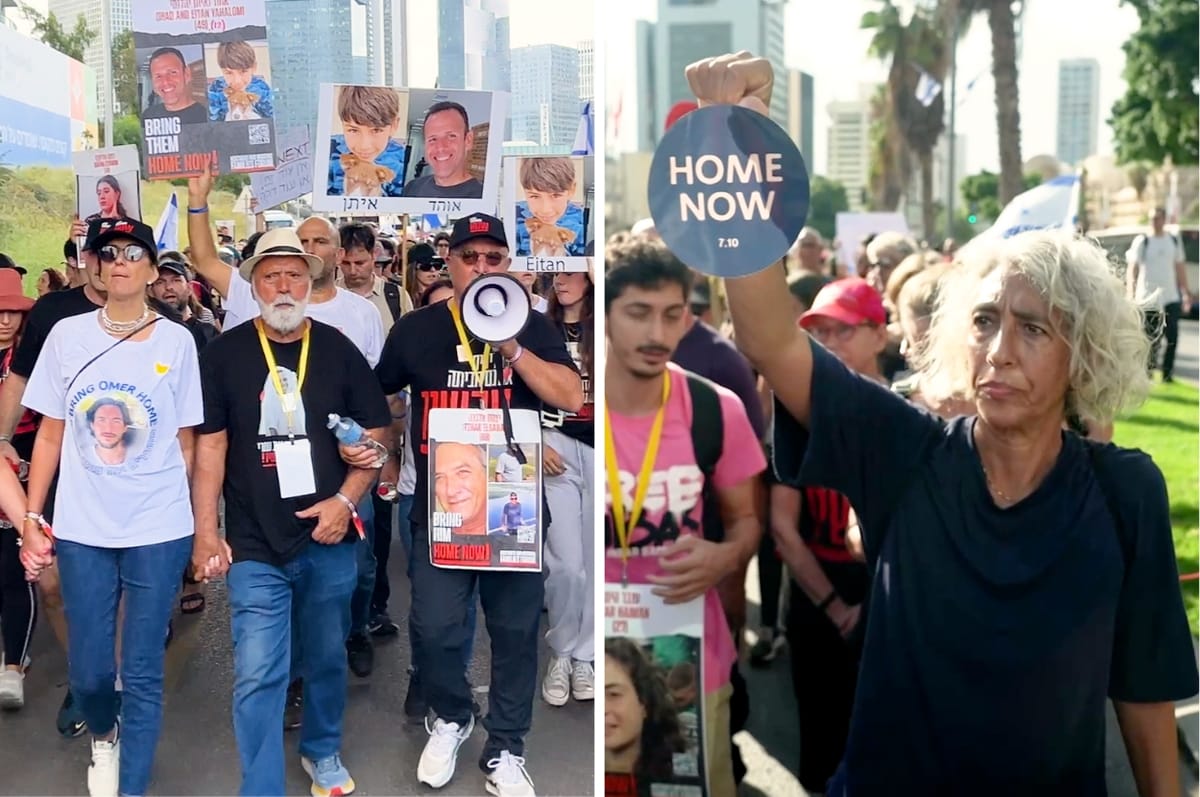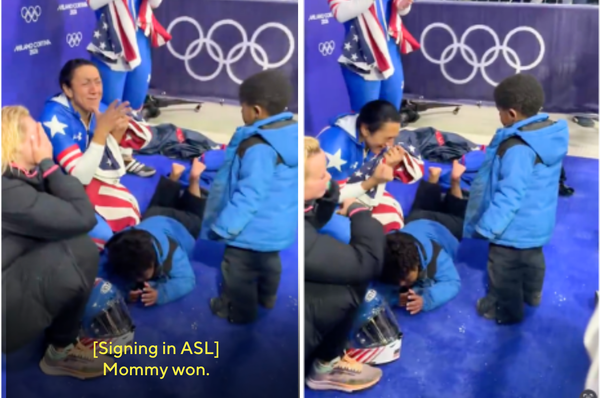The Israeli Hostages’ Families Have Started A Five-Day March To Demand Netanyahu Bring Them Home Now
The hostages’ families have complained that the Israeli government has failed to provide updates on the situation and did not meet with them until Oct. 26, almost three weeks after the kidnapping.

The Israeli families of the hostages taken by Hamas have started a five-day march from Tel Aviv to prime minister Benjamin Netanyahu’s office in Jerusalem to demand the government take action to bring their family members home immediately.
About 100 people, including the hostages’ family members and supporters, joined the protest starting Tuesday Nov. 14, according to the New York Times.
They took to the streets to call out the government’s inaction in bringing their family members home for over a month.
Hamas had initially offered Israel a “everyone for everyone” deal, saying it would release all Israeli hostages if Israel releases the thousands of Palestinians held in Israeli prisons.
This was dropped to a five-day ceasefire, and then again to a three-day humanitarian pause in return for the release of a number of the hostages.
The hostages’ families have complained that Netanyahu’s government has failed to provide updates on the situation and did not meet with them until Oct. 26, almost three weeks after the kidnapping.
On Oct. 28, the hostages’ families met with Netanyahu again and urged him to agree to the “everyone for everyone” prisoner swap.
At the meeting, Netanyahu told the families the government “will exhaust every possibility” to bring the hostages home.
He later said at a press conference that a full prisoner exchange was an option that the government had discussed but did not comment further.
A Guardian report released on Nov. 9 revealed that Netanyahu had rejected a revised deal from Hamas near the end of October that offered to free children, women, elderly and sick people from the captives in exchange for a five day ceasefire around.
Netanyahu then launched a ground invasion of Gaza shortly after.
He recently also rejected a three-day humanitarian pause in fighting in exchange for 10 to 15 hostages.
“I and my family also don’t feel like we’re in good hands. We don’t feel like we get enough information. We fell into the darkness. We want answers,” Amit Zach, a family member of a hostage, told Reuters.
“I don’t have a solution, but it’s not my job to get a solution. It’s my job to demand my family back,” he said.
“Our government has to do everything to release them. Otherwise, we will be a mental, wounded country,” a supporter of the hostages’ families, David Pollack, told Reuters.
“They were kidnapped, they didn’t do anything wrong, it was the government who had to protect them, the society who had to protect them,” Pollack added.
About 239 people, including 33 children, were taken hostage by Hamas and other Palestinian militant groups on Oct. 7.
Since then, Hamas has released four hostages, while the Israeli military have rescued only one woman Israeli soldier since it started its ground invasion.
Hamas has said that about 60 hostages have been killed due to Israeli airstrikes on Gaza.




